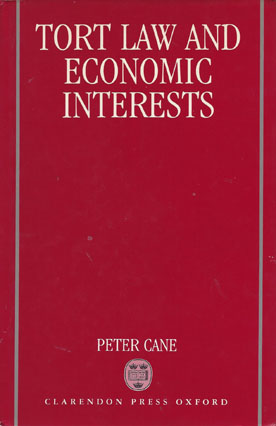We will be closed from 5pm Thursday 17th April for the Easter Bank Holidays, re-opening at 8.30am on Tuesday 22nd April. Any orders placed during this period will be processed when we re-open.

Out of Print
This study examines the ways in which the law of tort provides protection against injury to financial assets such as money, property, and contracts.
In the past twenty-five years or so there has been much debate and litigation concerned with the extent to which the law of tort should be involved in compensating for economic loss caused by negligent conduct. Many believe that the primary role of tort law is to provide a system of compensation for death and personal injury and that it has, at most, only a marginal part to play in protecting economic interests.
This book is an attempt to examine the whole of tort law in terms of the protection of financial assets and of people's interest in creating and preserving wealth. It discusses the concepts and principles which tort law utilizes to this end, and the relationship between tort law and other legal techniques of providing such protection.
It focuses primarily on the kinds of financial interests the law of tort protects and on the sort of protection it provides. This approach allows a fresh examination of functions of tort law and of the justifications, both social and doctrinal, for the imposition of tort liability so far as it is concerned with the protection of wealth